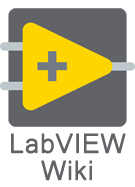Abstraction: Difference between revisions
Appearance
No edit summary |
Category reorg |
||
| (One intermediate revision by one other user not shown) | |||
| Line 1: | Line 1: | ||
Abstraction is a concept of software design which places the complexity of various parts of the application into its own self contained [[Object_oriented_software|objects]. This is mostly commonly used on Hardware Abstraction Layers, which can allow for communicating with various hardware devices which all have common interfaces but have specific implementations. | Abstraction is a concept of software design which places the complexity of various parts of the application into its own self contained [[Object_oriented_software|objects]]. This is mostly commonly used on Hardware Abstraction Layers, which can allow for communicating with various hardware devices which all have common interfaces but have specific implementations. | ||
== External Links == | == External Links == | ||
| Line 5: | Line 5: | ||
*[http://www.ni.com/webcast/3431/en/ Hardware Abstraction Layer (HAL)] by Elijah Kerry - [https://forums.ni.com/t5/LabVIEW-Development-Best/Measurement-Abstraction-Plugin-Framework-with-Optional-TestStand/ta-p/3531389 Plugin Framework] | *[http://www.ni.com/webcast/3431/en/ Hardware Abstraction Layer (HAL)] by Elijah Kerry - [https://forums.ni.com/t5/LabVIEW-Development-Best/Measurement-Abstraction-Plugin-Framework-with-Optional-TestStand/ta-p/3531389 Plugin Framework] | ||
*[https://www.youtube.com/watch?v=qrzBYIrA-cs JKI Hardware Abstraction Video]. | *[https://www.youtube.com/watch?v=qrzBYIrA-cs JKI Hardware Abstraction Video]. | ||
[[Category:Frameworks]] | |||
Latest revision as of 21:12, 17 June 2020
Abstraction is a concept of software design which places the complexity of various parts of the application into its own self contained objects. This is mostly commonly used on Hardware Abstraction Layers, which can allow for communicating with various hardware devices which all have common interfaces but have specific implementations.
